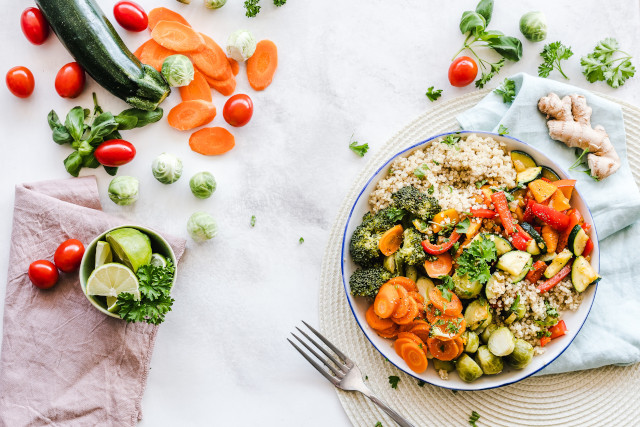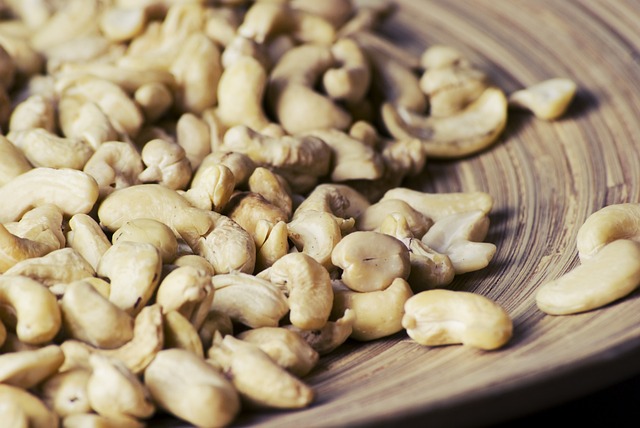For many people today, living with diabetes is easier thanks to medications like Ozempic. This popular diabetes medication is part of the class of GLP-1s, which are now commonly used across the Western world to manage and maintain diabetes.
However, despite the fact that Ozempic is lauded as one of the best diabetes medications out there, it does have some limitations. For example, there are some Ozempic foods to avoid. Some foods do not play nice with you when taking this treatment.
Given Ozempic is for diabetics; there will be certain food groups that should be avoided in the first place. When you eat some of the Ozempic foods to avoid, though, you can bring on side effects that can either limit the results you achieve by taking the drug or increase your chance of uncomfortable side effects.
Are you worried about eating some of these Ozempic foods? Then use this guide to stay on track.
The Ozempic Foods to Avoid
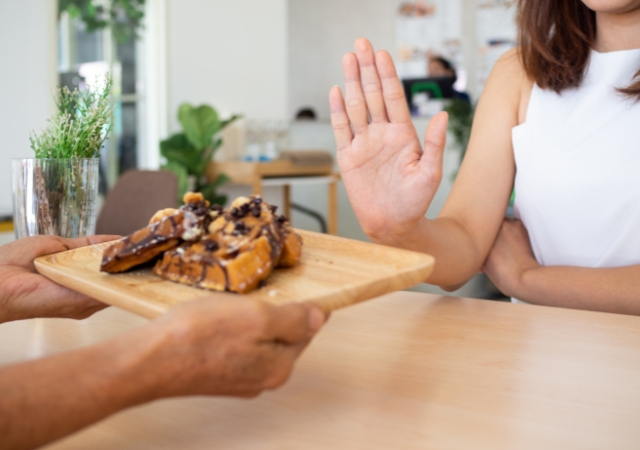
While we could list lots of foods to go out and avoid, it is better instead to focus on food classes. There are certain types of food that you should not be eating if you happen to be taking Ozempic (and are diabetic). To help you avoid eating these foods, we have broken down some of the most important Ozempic food groups to avoid.
This should help you to avoid the side effects that can make taking Ozempic a challenge. It should also boost your chances of success when using Ozempic. In general, though, you should be looking to avoid eating foods such as:
- Fast food meals as they tend to be high in sugar content and fat
- Junk food and processed food, due to the low standard of food quality
- Treats that are high in sugar, such as cakes, cookies, and pastries
- Soft drinks and fruit juices which are high in sugar and sweetener content
- Starchy foods such as chips and fries
- Fruit snacks, thanks to their inherent high sugar content
However, this is just a small list of food types to avoid. In general, you should be looking to avoid food groups that fall into the following categories:
Sugary Foods (and Drinks)
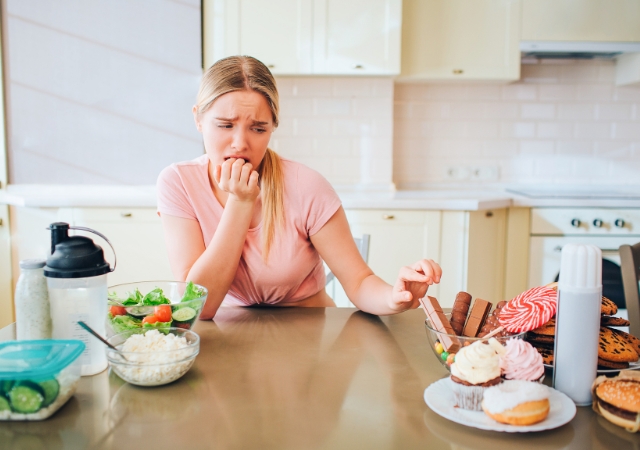
Yes, it is a shame that you cannot enjoy the sugary treats of the world. Candy bars, desserts, chocolate bars, these kinds of things?
They should all be a thing of the past, especially if you are taking Ozempic. They tend to make it hard for diabetics to properly manage their blood sugar, which can have serious health issues later on.
Therefore, you should ensure you do not eat so many sugary products. The immediate impact of sugary treats on our blood sugar levels means that you can elevate your blood sugar to damaging levels. Make sure that you look at the sugar count of any foods you buy from the start.
Anything with a yellow or red sugar label should be avoided; at the very least, it should be moderated.
Fried Food
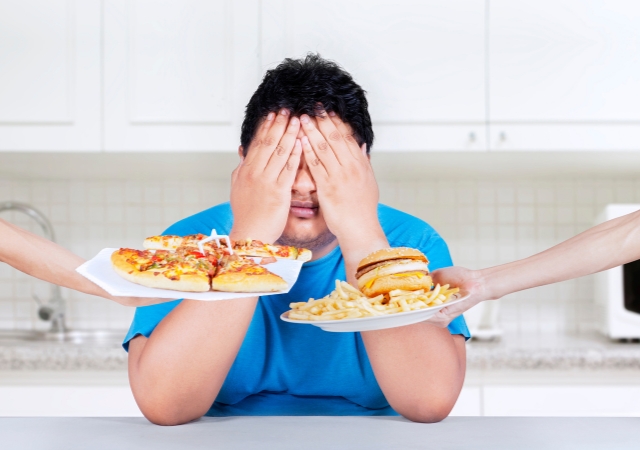
Fried food tastes good, but it tastes good because it is so bad!
If you are taking Ozempic, you should not eat fried food very much. For people taking Ozempic, you can find that you have issues like bloating and gas regularly.
By eating loads of fried food, you make that more common. Fried food is prominent because it can heighten symptoms of bloating and/or gas.
Combining the usage of Ozempic with lots of gassy food is more or less a certainty that you will start to feel these symptoms. On top of that, fried food is usually loaded with unhealthy types of fat that can make it hard for you to control your weight. It can also play havoc with your diabetes.
So, while it might be fun to eat fried foods, it is not so good for your well-being!
Vegetables (with a High-Glycemic Count)
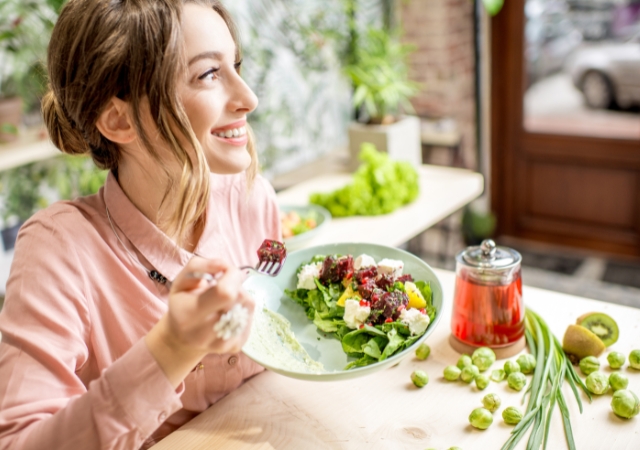
Yes, you might be surprised to see vegetables on this list. But it is simply a fact that vegetables that have a high-glycemic count should be avoided when you are taking Ozempic. In fact, of all the Ozempic foods to avoid, these could be the most important!
Why? Because we assume that vegetables are A-OK for diabetics, you can eat an excess of high-glycemic vegetables. That is an issue because it can cause carnage with your ability to regulate your blood sugar. You are fine eating things like leafy greens and beans, as well as carrots and tomatoes, to name but a few.
But things like potatoes are high-glycemic and should be limited when you are taking Ozempic. It is best to speak to a dietician or your Ozempic provider to find out what vegetables to cut out and what to moderate.
Carbohydrates
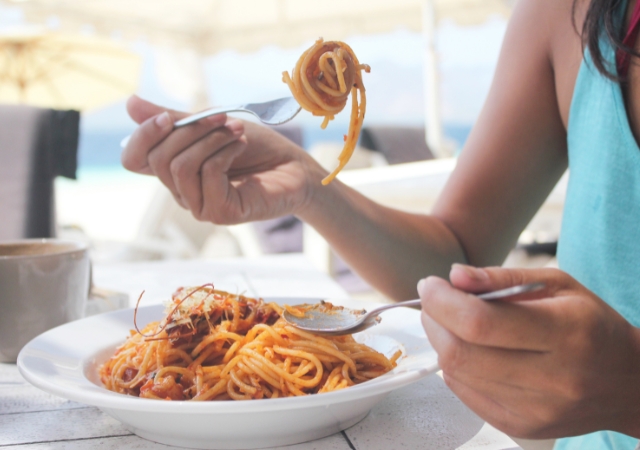
While our diets do generally need some carbohydrates, gorging on refined carbohydrates is likely to be a problem for any Ozempic user. This means that things like breakfast cereals and pasta should be minimised as a dietary options. Like the vegetables above, they are a high-glycemic food choice that can limit your quality of life.
Carbohydrates should be limited, and you should look for low-glycemic foods like whole grains. These are far less likely to be littered with sugars and thus should ensure that you do not see a needless spike in your blood sugar.
Making the Most of Your Ozempic Dietary Choices
So, it would help if you were avoiding any food that falls into the above categories. You should also be looking to avoid things that are excessively high in ‘bad fats’, and you should also be looking to reduce your intake of other sugary goods. Yes, this means things like alcohol.
While alcohol is not on the no-no list for Ozempic users, consuming too much can be as bad for you as the foods above since it can lower your blood sugar, which can be dangerous.
While Ozempic is a highly successful diabetes medication, you do need to be quite strict with what you are eating. In general, you should be looking to:
Things to avoid:
- Avoid eating foods that are rapidly digested, as they impact your blood sugar
- Cut out starchy foods, or at least eating them at a bare minimum amount
- Reduce simple sugars and unhealthy fats which contribute to blood sugar spikes
- Avoid high-glycemic foods, instead swapping them out for low-glycemic alternatives
Things to consider:
- Eat smaller portions of food, making sure you can better manage your blood sugar
- Take in more high-fiber foods, as these can make you feel fuller for longer
- Consume foods that are rich in protein and have healthy fats within them
As ever, you should speak to a medical professional when trying to adjust your diet for taking Ozempic. They can help you to work out what is personally suitable and safe for you, as every body is different.
Do not just assume or take risks, though; use professional advice to build a dietary plan that ensures you are eating well and thus avoid the risks of eating Ozempic foods that you should avoid.


